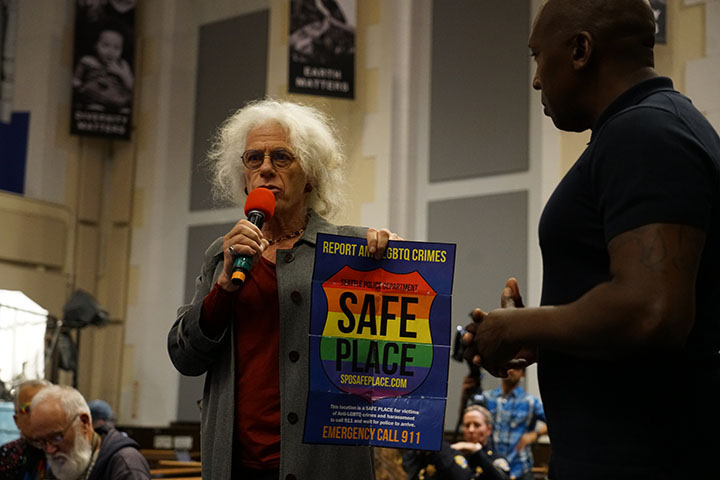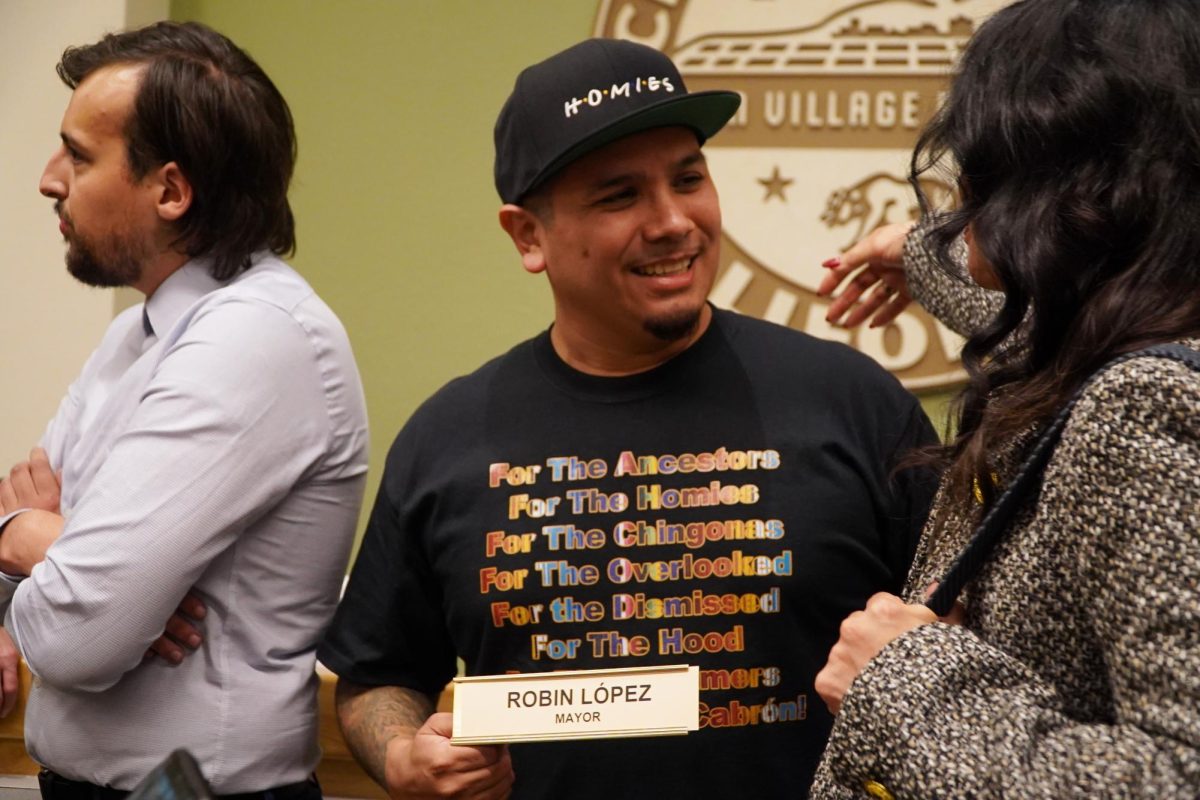Chief of Police William Scott delivered a historic apology Aug. 26 to the city’s LGBTQ+ community on behalf of the San Francisco Police Department.

“We are here tonight to reflect and to apologize for our past actions against the LGBTQ+ community and acknowledge the harm that has been done that still lingers to this day,” Scott said while addressing a small crowd inside the Glide Memorial United Methodist Church in the Tenderloin.
The meeting took place on the 53rd anniversary of the Compton’s Cafeteria riot of 1966. Activists hope it’s the first of many listening sessions held to improve relations between the SFPD and the LGBTQ+ community.
“It’s a start,” said Alex U. Inn, a drag king and musical performer who led the Resistance Contingent in the San Francisco Pride Parade and is running for election to the SF Pride Board.
“We can’t just have one or two [meetings] and say, ‘OK, everything is fixed.’ This is decades and generations of pain from the hands of police officers.”
Predating the more famous Stonewall riot by three years, the Compton’s Cafeteria riot took place in the Tenderloin after a transgender woman is said to have thrown her coffee at a police officer when he harassed her. The riot marks an important milestone in the uprising of transgender people against police harassment in San Francisco.
Police would routinely harass, abuse and use violence against transgender women and gay men, said Susan Stryker, who co-produced the Emmy Award-winning “Screaming Queens.”
“They were considered bottom-of- the-barrel prostitutes, expendable people (police) could mistreat with impunity because nobody would care,” she said.
Transgender women have described police arresting them for “cross- dressing,” forcing them to perform oral sex on officers while in custody, strip-searching them in front of other prisoners and putting them into solitary confinement for refusing to shave their long hair, Stryker said.
Chief Scott called it an era where not just laws and policies, but also the culture of the SFPD, was “just plain wrong.”
“We’re sorry for what happened, we’re sorry for our role in it,” Scott said at the meeting.
Though Scott’s apology was met with applause, some in attendance expressed dissatisfaction, pointing to recent SFPD interactions with members of the LGBTQ+ community.
“Your apology [has] taken 53 years,” U. Inn said to Scott. “The apology needs to be right now.”
This year’s Pride Parade saw two people arrested for blocking the procession as protesters insisted excluding police from the event, among other demands. A protester reportedly sustained injuries, as did a police officer, according to the SFPD.

“If she — that person you’re talking about — is hurt, we are sorry, and we’re always sorry,” Scott said, referring to the protester reported as injured.
Lee Hepner, a board member of the Harvey Milk LGBTQ Democratic Club, said when he saw a video of the incident this year, he was shocked.
He recalled seeing a protester “rather violently” dragged across part of Market Street. After the incident, he said, community members expressed anger at the idea of even entertaining an apology from the SFPD.
“Irrespective of how I feel personally, that’s a real feeling in our community, that we can’t accept that apology,” Hepner said.
U. Inn also said that the previous year, police flanked the Resistance Coalition, which included many people of color. Meanwhile, she said, the much larger, predominantly white group of Apple employees had no police escort.
“We really need to get to a place where we cannot have SFPD in the parade, in our march,” U. Inn said.
Despite her criticism of the department, U. Inn said that the chief’s apology wasn’t meaningless.
“It means a lot from this chief,” she said. “He’s really true to what he says.”
Even so, others, including Stryker, felt SFPD owed more than an apology.
Christopher Carrington, an SF State professor of sociology and sexuality studies, said he will only show interest in an apology from the SFPD when the LGBTQ+ community receives reparations.
“We deserve payment for the destroyed careers, the legal fees, the lost business licenses, the forfeited property, the opportunity costs, the mental health care costs and all of the other ways that the city of San Francisco has extracted capital from its LGBT citizens via its law enforcement operation over the past 150 years,” Carrington said.













